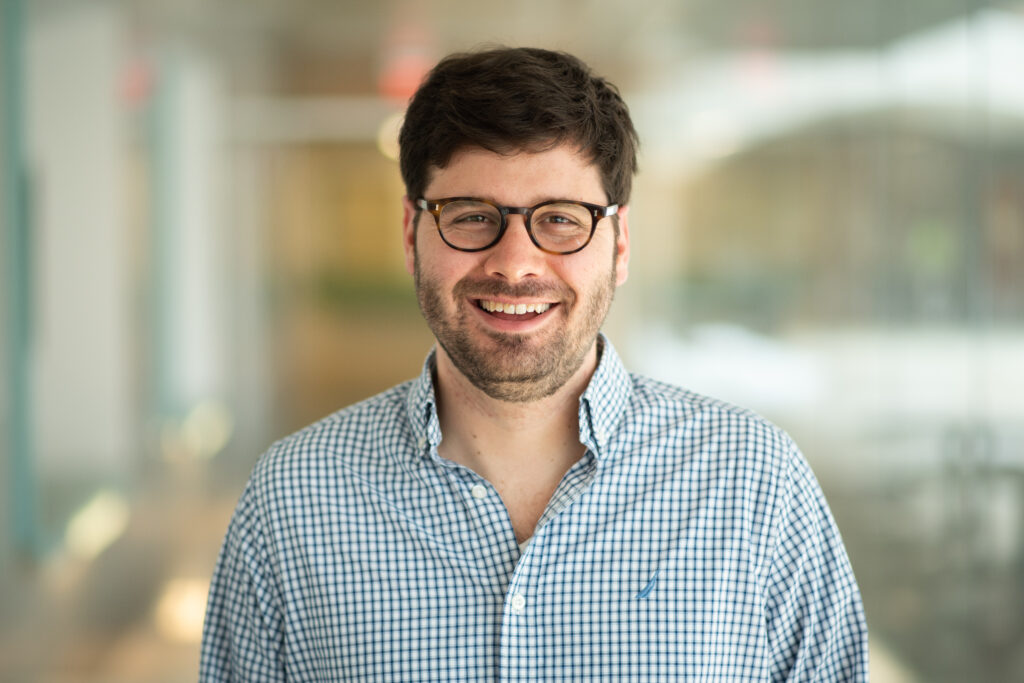Andrew Owens named 2025 Sloan Research Fellow

Andrew Owens was recently named a 2025 Sloan Research Fellow, supporting his work on creating and leveraging the capabilities of computer vision systems that learn from raw multisensory data, including sight, sound, touch, and motion, rather than human-provided supervision.
“The dependence of today’s machine perception systems on human language and interpretation limits their scalability,” explained Owens, assistant professor of Electrical and Computer Engineering (ECE). “It also makes it challenging for them to learn new things while acting autonomously. Worse, it gives machines a window into the world that is heavily mediated by highly fallible human teachers.”
Machine perception systems—which use machine learning algorithms to process sensory data from the environment—are often trained with data scraped from the internet, such as photos and videos labeled by humans. Instead, Owens aims to use multimodal sensory supervision, both in conjunction with and independently from human-provided language supervision, to create models that scalably learn about the world and apply their understanding to aid humans—for example, by providing healthcare to rural communities.
“I’m incredibly grateful to be receiving this award, which will support my research group’s efforts to create computer vision systems that require less supervision from human teachers,” Owens said.
Owens’ prior work demonstrated that machine perception systems can predict sound from and apply sound to silent video recordings, synchronize sound and video recordings, and use the information to learn about physical interactions, objects, and scenes. He has also improved robotic grasping using multimodal visual-tactile signals and advanced the current understanding of diffusion models by generating multi-view visual illusions and creating methods to detect fake images.
Owens has presented nine papers at the top computer vision conferences, including CVPR, ECCV, and ICLR. “This would be an enviable success rate even for a mid-career faculty member,” said ECE Interim Chair Jeff Fessler.
Owens previously received an NSF CAREER Award and the College of Engineering 1938E Award. His work has also been funded by DARPA, Toyota Research Institute, Sony, and Adobe.
The Sloan Research Fellowship was established by the Alfred P. Sloan Foundation “to support early-career researchers whose creativity, innovation, and research accomplishments make them stand out as the next generation of leaders.” It is one of the most prestigious and sought after awards for assistant professors in science, technology, engineering, mathematics, and economics. As a fellow, Owens will receive $75,000 over two years to support his research.
 MENU
MENU 
